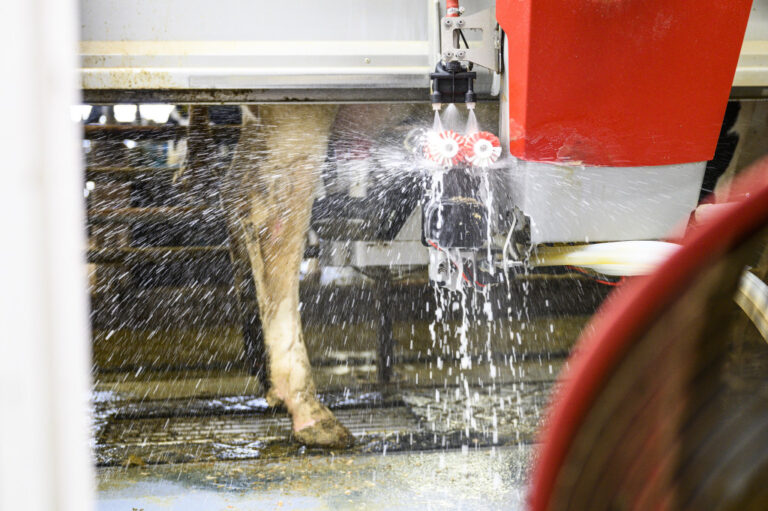Exercise Timing Linked to Lower Colorectal Cancer Risk
Timing Your Workouts: A Game Changer in Reducing Colorectal Cancer Risk
When it comes to our health, we often hear about the importance of exercise, but did you know that when you exercise could play a pivotal role in your health? Recent studies have suggested that specific times of day might be particularly beneficial in reducing the risk of colorectal cancer. That’s right! The timing of your workouts might be more important than you think. Let’s dive deep into this fascinating topic and explore how adjusting your exercise schedule could potentially slash your risk of this disease.
Understanding Colorectal Cancer
Before we jump into the nitty-gritty of exercise timing, let’s take a brief moment to understand what colorectal cancer is. Colorectal cancer starts in the colon or rectum, parts of your bowel. Like uninvited guests at a party, these cancer cells can disrupt your system, leading to a variety of health issues.
The risk factors for developing colorectal cancer include:
- Age: Risk increases as you grow older.
- Diet: A diet high in processed foods and red meat can elevate the risk.
- Lifestyle Choices: Smoking, excessive drinking, and lack of physical activity are linked to higher rates.
So, how can exercise fit into this picture? Glad you asked!
The Link Between Exercise and Cancer Risk
Exercise is like a well-oiled machine for your body. It boosts your immune system, helps manage weight, and improves your overall mood. But beyond these benefits, research indicates a solid connection between regular physical activity and a lowered risk of various cancers.
An added layer to this is the suggestion that timing could be a significant factor. You see, different biological processes occur at various times during the day. Your body has its own rhythm, known as the circadian rhythm, which regulates several processes, including metabolism, digestion, and cell regeneration—all crucial elements in the fight against cancer.
Let’s break this down further.
How Timing Influences Your Body
Think of your body as a factory with different shifts. Each shift has its tasks, whether it’s producing energy, repairing cells, or fighting off invaders. When you’re active at certain times, you might optimize the factory’s efficiency.
Research has indicated that:
-
Morning Exercise: Working out in the morning may set a positive tone for the entire day. Studies suggest that morning exercisers tend to stick with their routines longer. But is it all about sticking to it?
-
Evening Exercise: On the other hand, evening workouts may take advantage of warmer body temperatures and higher energy levels. This can enhance performance and even aid in muscle growth.
Is one better than the other? Maybe not! But let’s explore how they both might influence your colorectal cancer risk.
Exercise Timing and Colorectal Cancer: What the Studies Say
A study published in a reputable journal identified a compelling pattern. Researchers noted that individuals who exercised consistently—be it morning, afternoon, or evening—exhibited a significantly lower risk of colorectal cancer compared to those who led a sedentary lifestyle.
But here’s the kicker: exercising at certain times of the day showed even more substantial protective effects. Researchers speculated that working out in the late afternoon or early evening might offer additional benefits—but why?
Morning vs. Evening Workouts: Which is More Effective?
-
Early Birds: If you’re an early riser, morning workouts can help you kickstart your metabolism and may align better with your body’s natural rhythms. Think of it as revving up the engine of a race car before the big race!
-
Night Owls: If you find yourself energized later in the day, evening workouts allow you to use your body’s natural heat and muscle readiness. This can enhance endurance and perhaps contribute to lean muscle gain, giving you that extra boost against potential health issues.
Both periods come with unique advantages, but opting for moderate to vigorous exercise regularly—regardless of the time—seems crucial in reducing colorectal cancer risk.
The Science Behind Exercise and Cancer Prevention
So, how does exercise lower the risk, you ask? Let’s take a closer look at some scientific aspects supporting this idea:
-
Weight Management: Regular exercise helps maintain a healthy weight, which is fundamental in reducing cancer risk. Excess body weight can lead to increased inflammation and hormone imbalances, both of which are linked to cancer.
-
Enhanced Digestion: Physical activity stimulates bowel function, helping to move food and waste through the digestive system more efficiently. This reduced transit time can shrink the chances of harmful substances lingering in the colon.
-
Hormonal Regulation: Exercise can help modulate hormone levels, notably insulin and estrogen. High levels of insulin have been linked to an increased risk of several cancers, including colorectal.
-
Immune System Boost: Regular physical activity enhances immune responses, helping your body fend off cells that can turn cancerous.
-
Stress Reduction: Let’s not forget about the mental aspect! Regular exercise can lower stress levels, which in turn can help prevent the harmful effects of chronic stress on your body, such as inflammation.
Tips for Timing Your Workouts
Are you ready to pencil in some workouts? Here are a few practical tips on how to maximize the potential benefits based on timing:
- Find Your Sweet Spot: Experiment with morning and evening sessions to see what feels best for your body and schedule.
- Set a Routine: Try to maintain a consistent workout schedule. Your body loves routine, and it helps reinforce those beneficial habits!
- Mix It Up: Incorporate various types of workouts—strength training, cardio, and flexibility exercises—to keep things fresh and exciting!
- Listen to Your Body: If you’re exhausted after a long day, don’t push yourself too hard in the evening. Adjust your workouts according to your energy levels.
- Stay Balanced: Ensure that your diet complements your exercise routine. A balanced diet rich in fruits, vegetables, lean proteins, and whole grains will further aid your efforts against cancer.
Conclusion
The takeaway here is twofold: exercise is vital for overall health, and the timing of your workouts could play a significant role in reducing your risk of colorectal cancer. Whether you’re a morning lark or a nocturnal creature, it’s crucial to find what works best for you and stick to a routine.
In a world filled with uncertainties about health, one thing is clear: moving your body, regardless of the hour, is a step in the right direction. As always, consult with your healthcare provider before embarking on any new fitness regime, especially if you have pre-existing health conditions.
Now, it’s time to lace up those sneakers! Why not start planning your new workout routine today?
FAQs
1. What is the best time of day to exercise to reduce colorectal cancer risk?
While both morning and evening workouts have benefits, studies suggest that late afternoon or early evening may offer additional protective effects.
2. How often should I exercise to lower my cancer risk?
Aim for at least 150 minutes of moderate-intensity aerobic activity or 75 minutes of vigorous activity each week, along with muscle-strengthening activities on 2 or more days.
3. Can diet also influence the risk of colorectal cancer?
Absolutely! A diet high in fruits, vegetables, and whole grains while low in processed foods and red meat can contribute significantly to cancer risk reduction.
4. Is it beneficial to mix different types of workouts?
Yes, a well-rounded fitness routine that includes cardio, strength training, and flexibility exercises is recommended for overall health and wellness.
5. Should I consult my doctor before starting a new exercise program?
Absolutely! Always check in with your healthcare provider, especially if you have underlying health issues, before beginning a new exercise regimen.







